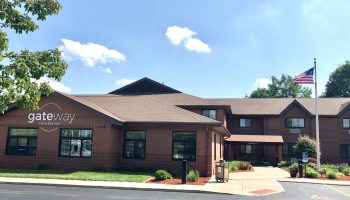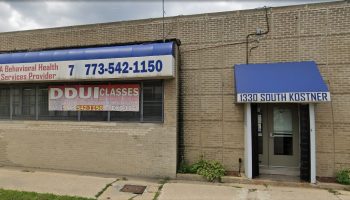About The South Suburban Council
The South Suburban Council, located in East Hazel Crest, Illinois, provides alcohol and drug rehab services for adults. Their programs include medication-assisted treatment (MAT), residential treatment, intensive outpatient (IOP) and general outpatient (OP) programs, and aftercare services. Specialized support is available for clients facing criminal drug charges, as well as clients with co-occurring conditions.
Their MAT program helps clients withdraw from alcohol, opioids, and other drugs in a secure, medically supervised environment. Providers may administer FDA-approved addiction medications to reduce the severity of physical withdrawal symptoms, control cravings, and lessen the risk of relapse.
In addition to MAT, they also provide residential and outpatient services to help clients address their chemical dependencies and better understand the emotional and behavioral aspects of their addiction. Available programs include individual and group counseling, recovery coaching, relapse prevention training, life skills development, and access to recreational and wellness-based activities such as meditation, exercise, and creative writing. Female clients have access to women-only counseling and support groups. Aftercare services include client connections to local, community-based resources that can aid in recovery, including the Council’s own peer-ran sober living home.
The South Suburban Council may work with most commercial insurance providers, including Aetna, Anthem, BlueCross/BlueShield, Humana, Cigna, and others. Ask your provider to verify coverage as out-of-network benefits may vary.
The South Suburban Council is accredited by The Joint Commission.
Operation Hours
- Monday 7AM - 5PM
- Tuesday 7AM - 5PM
- Wednesday 7AM - 5PM
- Thursday 7AM - 7PM
- Friday 7AM - 7PM
- Saturday Closed
- Sunday Closed
Levels of Care
-
Inpatient
Inpatient and residential programs provide round-the-clock medical and emotional support as you live at the treatment facility. This level of care may be recommended if you have severe addictions or mental health conditions since it removes outside distractions and allows you to focus solely on therapy.
-
Outpatient
In outpatient therapy, you’ll attend therapy sessions several times each week while living at home. This is ideal if you have a strong support system and a lower risk of relapse. Outpatient treatment offers flexibility to maintain work, school or family obligations.
-
Aftercare
Aftercare programs provide ongoing support after you complete a rehab program. They may include several components to help you maintain sobriety including therapy, community support groups and relapse prevention strategies. This gives you a network of resources as you reintegrate into your daily life.
Detox Service Setting
-
Inpatient Detox
Inpatient detox occurs in a dedicated treatment facility. You’ll live there around the clock and receive intensive medical support and supervision to help manage your withdrawal symptoms. It is suitable for individuals with moderate to severe addictions as it ensures a stable detox environment.
-
Outpatient Detox
Outpatient detox gives you access to medically supervised withdrawal services while still allowing you to live at home. You’ll attend a clinic for treatment and monitoring. This flexible option is suitable for those with mild to moderate withdrawal symptoms who have strong support systems.
-
MAT
Medication assisted treatment combines medication and counseling to manage withdrawal and reduce cravings for opioid and alcohol addiction. Medications may include methadone, buprenorphine or naltrexone. MAT is tailored to your needs so you can actively participate in your treatment journey.
Programs
-
Adult (18+)
Adult programs address the substance use and life challenges specific to adults. Therapists can deliver sessions in individual, group and family settings. Services often include job support and life skills training in a structured environment.
-
Young Adult (18 - 25)
Young adult programs are designed for individuals who are transitioning into adulthood. Topics of discussion typically include identity, independence and peer relationships. Providers may also offer life skills training and career support.
-
Women
Women's programs offer a safe and supportive space to focus on gender specific issues such as trauma, family roles and mental health conditions. Therapists tailor the sessions to address women's needs and foster empowerment in a healing and nurturing environment.
-
Men
Men's programs address substance use while also considering the social pressures, family roles and mental health concerns that are specific to men. You’ll learn healthy coping mechanisms as you build emotional resilience and develop communication skills.
Payment Options
- Self Pay
- Medicaid
- Private Insurance
- Sliding Scale Payment
Accreditations
-
 Joint Commission
Joint Commission
Contact
1909 Cheker Square
East Hazel Crest, IL 60429




